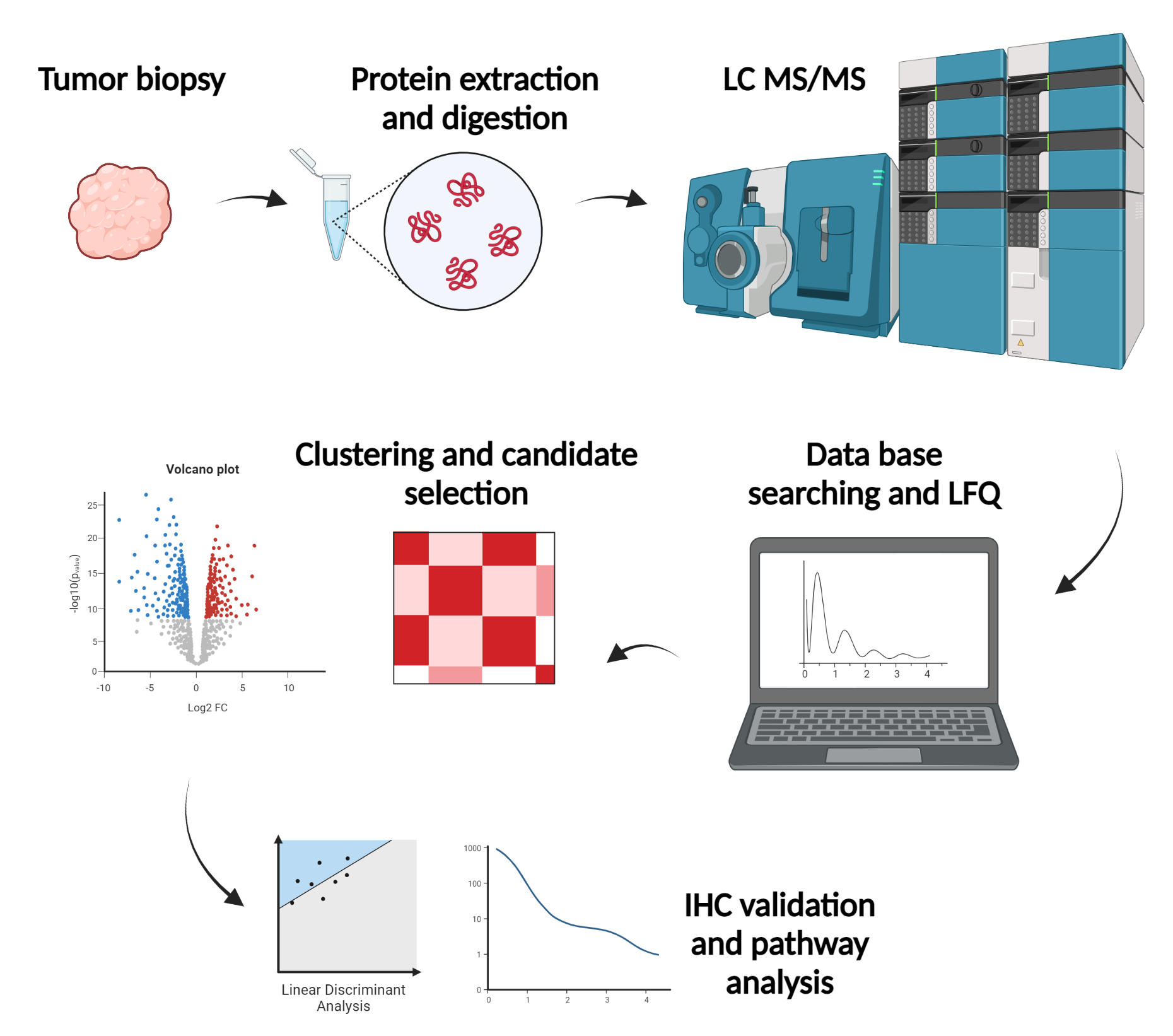- About Us
- One Stop Service
- Platform
In-Vitro
Molecular Assays
Cell-Based Functional Assays
In-Vivo
Pharmacology
Cancer PharmacologyInflammation Pharmacology - Join Us
- Contact Us
- Drug Discovery
- Molecular Assays
- Cell-Based Functional Assays
- Immune Functional Assays
- Tumor Pharmacology Platform
- Inflammation Pharmacology Platform
- In-Vitro ADME/DMPK
- In-Vitro Toxicology
- Pharmacology
- Cancer Pharmacology
- Inflammation Pharmacology
- In-Vivo ADME/DMPK
- In-Vivo Toxicology
- In-Vivo Pathology
- Clinical Laboratory
Proteomics
In recent years, proteome research has become more and more involved in the clarification of various disease mechanisms. Proteins can reflect the current condition of a disease and guide treatment. Through the comparative analysis of the proteome, we can find specific proteins that have the potential to become molecular targets of new drug designs and provide molecular markers for the early diagnosis of diseases. Due to the development of mass spectrometry technology, currently, our understanding of the proteome in organisms is more comprehensive and accurate. Compared to other proteomics techniques, 4D label-free proteomics has faster speed, higher sensitivity, and stronger stability. It can detect proteins in various matrices, including micro samples such as single cells, serum, plasma, cerebrospinal fluid, and urine.

Example
Pathway analysis reveals characteristics of endometrioid carcinoma and HGSC

Proteins significantly elevated in endometrioid carcinoma (A) or HGSC (B) samples were analyzed in Metascape, and the top 20 significant overrepresented pathways are shown. (C) Heatmap comparing similarities and differences between highly significant process and pathways. (D) Heatmap showing normalized (z-scored) expression of core proteins matching to estrogen response late or antiviral mechanism by IFN-stimulated genes. Proteins significantly elevated in endometrioid carcinoma (A) or HGSC (B) samples were analyzed in Metascape, and the top 20 significant overrepresented pathways are shown. (C) Heatmap comparing similarities and differences between highly significant process and pathways. (D) Heatmap showing normalized (z-scored) expression of core proteins matching to estrogen response late or antiviral mechanism by IFN-stimulated genes.
References
Shanghai Outdo Biotech Co.,LTD http://www.superchip.com.cn/biology/index.html
Dieters-Castator DZ, Rambau PF, Kelemen LE, et al. Proteomics-Derived Biomarker Panel Improves Diagnostic Precision to Classify Endometrioid and High-grade Serous Ovarian Carcinoma. Clin Cancer Res. 2019;25(14):4309-4319. doi:10.1158/1078-0432.CCR-18-3818

Shanghai Novopathway Biotechnology
Building No.5, East Huaxia Road No.333, Pudong New Area, Shanghai
BD Cooperation Email: BD@novopathway.com Tel: 021-5838 0618-501
Join Us Email: HR@novopathway.com Tel: 021-5838 0356

Beijing Sun-Novo Pharmaceutical Research
Building No.7, West Shuangying Road No.79 , Changping Area, Beijing
Website: http://www.sun-novo.com




